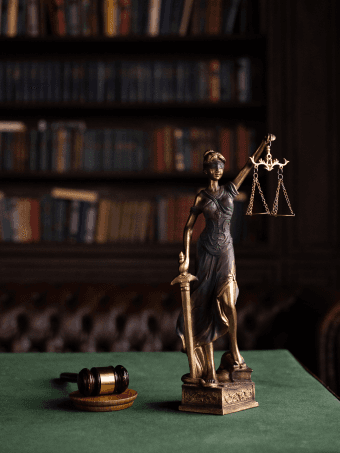
What is phonetic similarity?
Phonetic similarity is a concept in trademark law that refers to the similarity in sound between two or more trademarks. Phonetic similarity is one of the factors that trademark offices consider when examining trademark applications to determine whether a proposed trademark is likely to cause confusion with an existing registered trademark.
In general, trademarks that are phonetically similar to already registered trademarks are more likely to be rejected, as they could cause confusion among consumers. The trademark office will also consider other factors, such as the visual appearance of the trademark, the goods or services associated with the trademark, and the strength of the existing trademark.
Examples of phonetic similarity in trademark disputes
Starbucks
In 2006, Starbucks opposed the trademark application of a small New Hampshire coffee roaster named Charbucks, arguing that the name was too similar to their own trademark and could cause confusion among consumers. The case was ultimately settled in 2013, with Charbucks being allowed to continue using their name as long as they did not use a similar logo.
Another coffee brand, "Sardarbuksh Coffee & Co", established their business in India in 2015 was not as lucky as Charbucks. In 2017, Starbucks sent a letter to Sardarbuksh Coffee demanding to change their name and logo. The court ruled in favour of Starbucks and ordered the defendants to change the name of the business from “Sardarbuksh Coffee & Co.” to “Sardarji-Bakhsh Coffee & Co.”
Jack Daniel's
In 2014, VIP Products LLC released a line of dog toys shaped like whiskey bottles and marketed under the name "Bad Spaniels," with labels that mimicked the look of the Jack Daniel's whiskey label. Jack Daniel's Properties, the company that owns the Jack Daniel's trademark, filed a lawsuit against VIP Products LLC, alleging trademark infringement and dilution, as well as unfair competition and deceptive trade practices.
One of the arguments made by Jack Daniel's was that the "Bad Spaniels" mark was phonetically similar to its own brand, and that this similarity would likely cause confusion among consumers. The court ultimately found that VIP Products LLC had infringed on Jack Daniel's trademark, and ordered the company to pay damages and stop selling the "Bad Spaniels" toys.
McDonalds
One well-known example of a McDonald's trademark dispute involving phonetic similarity of company names is the case of "McSweet LLC" vs. McDonald's Corporation. In this case, McSweet LLC, a small Vermont-based maple syrup company, was sued by McDonald's for trademark infringement because the fast-food giant claimed that the McSweet name sounded too much like "McDonald's" and could cause confusion among customers. The case was eventually settled out of court.
Another example is the case of "MacJoy Fastfood Corporation" vs. McDonald's Corporation in the Philippines. MacJoy was a local fast-food chain that used a similar name and logo to McDonald's. In 2002, McDonald's sued MacJoy for trademark infringement, arguing that the similarities between the two brands would cause confusion among consumers. The case was eventually settled, with MacJoy agreeing to change its name and logo.
Louboutin
In 2019, Christian Louboutin filed a trademark infringement lawsuit against the New York-based luxury shoe brand Lubov, claiming that its name and logo were too similar to Louboutin's registered trademarks. The lawsuit alleged that Lubov's use of a red sole on some of its shoes, which is a trademark feature of Louboutin shoes, further added to the confusion among consumers. The case was settled in 2020, with Lubov agreeing to change its name to "LJ Cross" and modify its logo to avoid any confusion with Louboutin's trademarks. The settlement also required Lubov to cease using any red soles on its shoes and to remove any social media posts featuring the red-soled shoes.
Louis Vuitton
Louis Vuitton Malletier S.A. v. Haute Diggity Dog, LLC (2007): Louis Vuitton sued Haute Diggity Dog, a pet toy company, for trademark infringement over the use of its "Chewy Vuiton" line of dog toys, which Louis Vuitton claimed was phonetically similar to its own brand. The court ultimately found that Haute Diggity Dog's use of the mark was a parody and did not infringe on Louis Vuitton's trademark.
FAQs - 5 high-profile trademark disputes involving phonetic similarity
1. How does phonetic similarity impact the outcome of trademark disputes beyond just consumer confusion?
Phonetic similarity in trademark disputes can affect not only consumer confusion but also the overall strength and distinctiveness of a brand. When trademarks sound alike, it can undermine the uniqueness of the original brand, leading to potential dilution of brand identity and value. Courts may consider phonetic similarity in terms of potential harm to the original brand's reputation and market position. This can result in damages, injunctions, and significant changes to the newer brand’s name or branding elements, impacting the latter’s ability to operate effectively and compete in the market.
2. What steps can a company take to avoid being sued for phonetic similarity with an existing trademark?
To avoid legal disputes over phonetic similarity, companies should start with a thorough trademark search and analysis before finalizing their brand name. This includes checking for both phonetic and visual similarities with existing trademarks. At Trama, we offer a free trademark search, providing results within 24 hours. This search can help you move forward with confidence, knowing that your trademark is clear for registration.
3. How do courts typically handle cases where the phonetic similarity is deemed to be a parody or satire?
Courts generally handle cases involving phonetic similarity used for parody or satire with a nuanced approach. They often assess whether the use constitutes a genuine parody or if it could potentially cause consumer confusion despite its satirical intent. For instance, in cases like Louis Vuitton Malletier S.A. v. Haute Diggity Dog, courts may rule that parody, when clearly distinguishable as such, does not necessarily infringe on trademark rights. However, if the parody is deemed likely to cause confusion or harm the original brand's reputation, courts may still impose restrictions or require changes to mitigate any negative impact.


